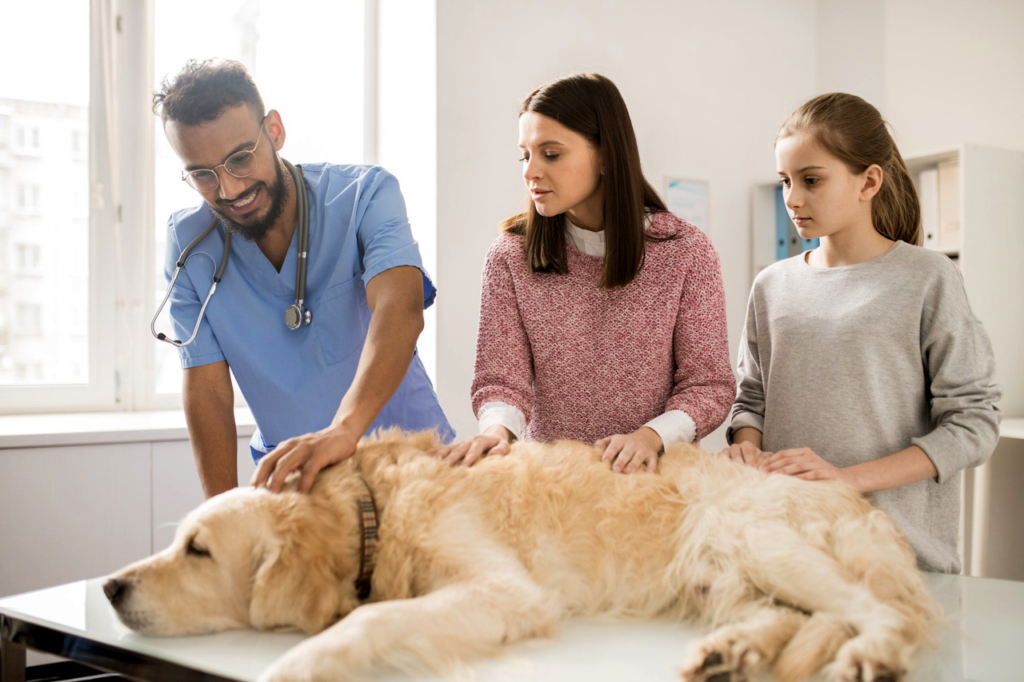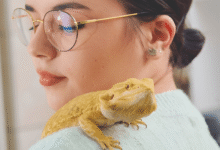
Essential Vaccinations for Your Furry Friend
Pet owners often consider their furry companions as beloved family members, deserving the best care possible. One crucial aspect of responsible pet ownership is ensuring your furry friend is up-to-date on essential vaccinations. In this comprehensive guide, we’ll explore the world of pet vaccinations, covering everything from understanding how vaccines work to addressing common misconceptions. Let’s embark on a journey to safeguard the well-being of our four-legged companions.
Read More: Complete Guide for the First-Year Puppy Vaccinations
Essential Vaccinations for Your Furry Friend

Welcoming a pet into your home brings immense joy, but with that joy comes the responsibility of safeguarding their health. Essential vaccinations play a pivotal role in preventing a myriad of diseases, providing a foundation for a long and healthy life.
Understanding Pet Vaccinations
How Vaccines Work
Vaccines work by stimulating the immune system to recognize and combat specific pathogens. They contain antigens that resemble disease-causing microorganisms, training the immune system to respond effectively.
Different Types of Vaccines
Pets receive different types of vaccines, including live attenuated, inactivated, and subunit vaccines. Each type offers distinct benefits and is administered based on the specific needs of the animal.
Core Vaccinations for Dogs
Distemper
Distemper is a highly contagious viral disease affecting dogs. Vaccination is crucial to prevent its spread and protect your canine companion.
Parvovirus
Parvovirus is a deadly infection that primarily affects puppies. Vaccination is the key to ensuring their survival.
Canine Hepatitis
Canine Hepatitis is a viral infection that can lead to severe liver damage. Vaccination is essential to prevent this potentially fatal disease.
Rabies
Rabies is a fatal disease that poses a threat to both animals and humans. Vaccination is not only essential but, in many places, a legal requirement.
Core Vaccinations for Cats
Feline Distemper
Feline Distemper, or panleukopenia, is a highly contagious and potentially fatal disease. Vaccination is crucial for protecting your feline friend.
Feline Calicivirus
Feline Calicivirus is a common respiratory infection in cats. Vaccination helps in reducing the severity and duration of the illness.
Feline Leukemia
Feline Leukemia is a viral infection affecting cats’ immune systems. Vaccination is recommended, especially for cats that spend time outdoors.
Rabies
Similar to dogs, cats are susceptible to rabies. Vaccination is a preventive measure that safeguards both your cat and the community.
Vaccination Schedule
Ensuring your pet receives vaccinations at the appropriate age is vital. A well-defined vaccination schedule, including booster shots, strengthens their immunity over time.
Benefits and Risks of Vaccination

Advantages of Vaccinations for Pets
Vaccinations offer protection against potentially life-threatening diseases, significantly improving the quality and longevity of your pet’s life.
Common Side Effects
While most pets tolerate vaccinations well, some may experience mild side effects such as lethargy or swelling at the injection site. Understanding and managing these side effects is crucial for responsible pet care.
Signs of Vaccination Reaction
Recognizing adverse reactions is essential for prompt intervention. Watch for signs such as persistent vomiting, difficulty breathing, or severe swelling, and seek immediate veterinary assistance if observed.
Importance of Regular Veterinary Check-ups
Routine examinations, coupled with vaccinations, are essential for monitoring your pet’s overall health. Establishing a strong bond with your veterinarian ensures comprehensive care for your furry friend.
Vaccine Misconceptions
Dispelling Common Myths
Myths surrounding pet vaccinations abound. It’s crucial to separate fact from fiction, understanding that vaccines are a cornerstone of preventive healthcare for pets.
The Role of Vaccinations
Vaccinations not only protect individual pets but also contribute to the broader community’s well-being by preventing the spread of infectious diseases.
Ensuring a Stress-free Vaccination Experience
Tips for Reducing Anxiety
Veterinary visits can be stressful for pets. Creating a positive experience involves acclimating your pet to the clinic environment and rewarding them for calm behavior.
Making Vaccinations Positive
Associating vaccinations with positive experiences, such as treats or playtime, helps create a positive association, making future visits less anxiety-inducing.
Special Considerations for Senior Pets
Adapting vaccination schedules for senior pets is essential. Discussing age-related concerns with your veterinarian ensures tailored healthcare for your aging companion.
Travel and Vaccinations
Before embarking on a journey with your pet, ensure compliance with travel vaccination requirements. Protecting your pet from potential diseases during travel is a responsible aspect of pet ownership.
DIY Vaccinations vs. Veterinary Administered Vaccinations

While some pet owners may consider administering vaccinations at home, it’s crucial to weigh the risks and benefits. Professional guidance ensures the correct administration and monitoring for adverse reactions.
The Cost Factor
Understanding the financial aspects of pet vaccinations is essential. Various options, including low-cost clinics and pet insurance, make responsible pet care accessible to all.
Read More: Top 10 Pet Health Tips Every Pet Parent Should Know
FAQs
- How often does my pet need vaccinations? Vaccination frequency varies based on factors like age, health, and lifestyle. Consult your veterinarian for a personalized schedule.
- Are vaccinations safe for all pets? Vaccines are generally safe, but individual reactions may occur. Discuss your pet’s health history with your veterinarian to minimize risks.
- Can my pet still get sick after vaccinations? While vaccinations greatly reduce the risk of disease, no vaccine guarantees complete immunity. Regular veterinary check-ups are essential.
- What should I do if my pet shows signs of a vaccination reaction? Seek immediate veterinary assistance if you observe severe reactions. Mild reactions, such as lethargy, may resolve on their own.
- Is it necessary to vaccinate indoor pets? Yes, indoor pets should still receive vaccinations as some diseases can be transmitted through various means, including contact with humans.
The Final Words
Essential vaccinations are the cornerstone of responsible pet ownership. By understanding the importance of vaccinations, dispelling myths, and ensuring a stress-free experience, you contribute to your pet’s well-being and the broader community’s health.







